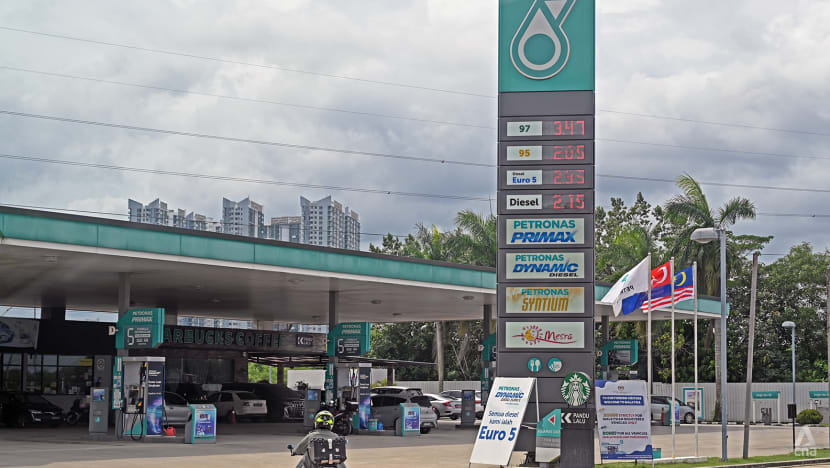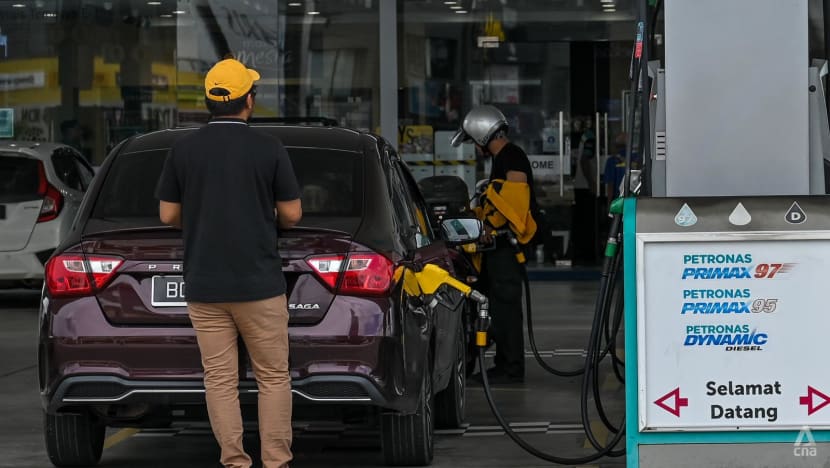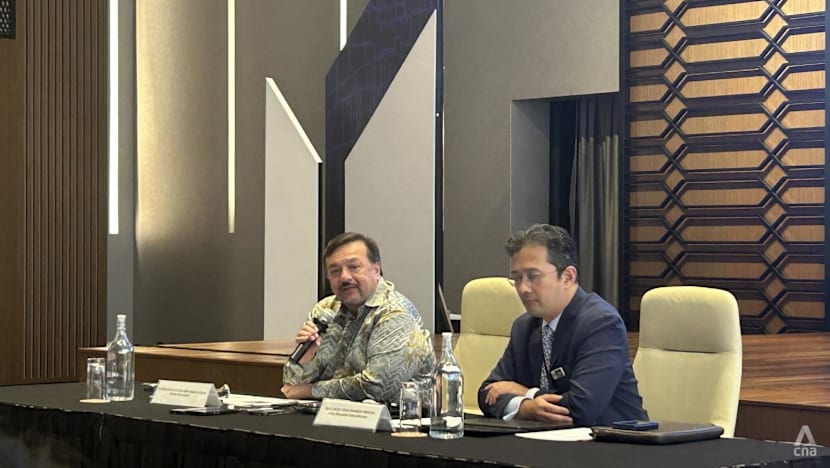Malaysia says happy to accept ‘trade-off’ of lower savings through new RON95 fuel subsidy policy
The government acknowledged public “noises” around rising costs of living in deciding to allow all Malaysians to continue enjoying subsidised RON95 petrol, said Second Finance Minister Amir Hamzah Azizan.

KUALA LUMPUR: Malaysia accepts the “trade-off” of not maximising savings from rationalising RON95 fuel subsidies - through the latest twist in its efforts to prevent “leakages” to foreigners and the wealthy - because it acknowledges the country faces cost of living pressures, Second Finance Minister Amir Hamzah Azizan said on Tuesday (Sep 23).
Prime Minister Anwar Ibrahim had announced on Monday that all Malaysians, regardless of income, will enjoy subsidised RON95 prices of RM1.99 (US$0.47) per litre, down from the current RM2.05 per litre, from Sep 30.
As part of the move, subsidised RON95 fuel will be capped at 300 litres a month. Malaysians must validate their MyKad - their national identity cards - at the pump to be eligible. Foreigners with Malaysia-registered vehicles will pay the unsubsidised RON95 price of about RM2.60 per litre.
The government has said that it would introduce several control measures to ensure that the scheme is properly targeted and not misused by the public.
Meanwhile, those who require additional capacity for the subsidised transport fuel beyond the allocated individual limit - such as ride-hailing drivers - may apply for it through their firms.

The changes come after Anwar previously said during his Budget 2025 speech last October that subsidies for RON95 fuel would also be cut for Malaysians in the top 15 per cent (T15) of the country’s income group.
The original proposal was expected to save about RM8 billion annually, he said then, stressing that Malaysia currently spends about RM20 billion a year on fuel subsidies enjoyed by both foreigners and super-rich Malaysians.
Amir Hamzah said on Tuesday that the new move would save the government between RM2.5 billion and RM4 billion a year, if oil prices are at RM75 per barrel.
“If you look at it from the government policy point of view, it's important that when we do changes, the changes must be easily acceptable to society, and it also needs to reflect the conditions - so, understanding that there are cost of living pressures,” he told reporters at a briefing in Shah Alam on the fuel rationalisation exercise.
He said the government would still achieve its aim of cutting “leakages” in subsidies by removing them for foreigners, deterring the smuggling of cheap Malaysian fuel to other countries, and maintaining its rule of restricting foreign-registered vehicles to the more expensive RON97 petrol.
“There was a trade-off in that process, but this government listens to the noises that we actually see outside, and we are respectful of that portion. So at this juncture, we are happy to actually bank in potential savings of about RM4 billion,” he said.
When asked about criticism that the government was not saving as much as it could, the minister was circumspect.
“Is RM2.5 billion small money? To me, every single dollar saved is worth it, because it's money that we can use for other means,” he said.
“We either (use it to) reduce the amount of deficit, or we invest back in things that are necessary for the people. So if I get RM2.5 billion or RM4 billion, I’d be very happy compared to not getting anything else.”
Amir Hamzah also said that the government was “on track” in its aim of narrowing the fiscal deficit to 3.8 per cent in 2025, from 4.1 per cent in 2024.
“SUFFICIENT” PREPARATIONS
He said at a separate briefing earlier on Tuesday that the new subsidised fuel price will be available only for Malaysians aged 16 and above with a valid driver’s licence, among other measures.
For instance, controlled measures will be implemented to verify that groups requiring more than 300 litres of the fuel monthly - such as ride-hailing drivers - are genuinely eligible for the extra concession, with confirmation expected from their respective companies.
“If eligibility is confirmed, they can apply with company support. We can verify usage through e-hailing system records to ensure the fuel is genuinely used for work,” he was quoted as saying by local news agency Bernama.
“The government will also restrict excessive daily usage,” Amir Hamzah told reporters on the sidelines of an event in Penang.
Bernama reported that preparations for the subsidy rollout were sufficient”, with all oil companies confirming their readiness, including the installation of machines at petrol stations.
“Machines for in-store use have been provided, and most oil companies have activated systems at payment terminals, usable either inside or outside the stations,” said Amir Hamzah at the Penang briefing on Tuesday.
“But we know nothing is perfect, and new initiatives may face minor challenges. I hope the public can be patient. What matters is that the government will honour its promise,” he added.

Anwar's administration has carried out a number of measures to boost revenue and productivity this year, including a minimum wage hike, increased electricity tariffs on heavy power users, and new sales taxes on some imported fruits.
But the government’s plan to introduce targeted fuel subsidies faced several twists and turns.
In July, Anwar announced new measures to address growing public disquiet about the rising cost of living, including a cash handout for all adult citizens and a promise to lower fuel prices.
Officials also highlighted that beyond income level, factors like property and luxury car ownership would be considered to determine the RON95 subsidy eligibility cut-off for Malaysians.
This came against a backdrop of questions on the fairest way of drawing the cut-off, as some middle-class Malaysians worried they could fall into the T15 bracket despite not considering themselves super-rich.
The targeting of RON95 subsidies in its previously intended form ultimately did not materialise.
Analysts have said that changes to the fuel subsidy rationalisation scheme - originally set for mid-2025 and aimed at also removing subsidies for the wealthy - could affect Malaysia's fiscal consolidation plans.
“Just like the Sumbangan Asas Rahmah (RM100 cash handout for all Malaysians), this is an appreciation initiative. It does not matter what your income level or position is, we are extending the benefit of RON95 subsidy to all Malaysians,” Anwar reportedly said at a Prime Minister’s Department gathering on Tuesday.
“Some may criticise that even the super-rich are entitled to it, but this is our way of recognising and appreciating Malaysian citizens.”
Amir Hamzah said at the Shah Alam briefing on Tuesday that the government intends to maintain the price of RON95 fuel at RM1.99 for Malaysians “for a while”.
“I cannot tell you I guarantee it for a lifetime - that depends on circumstances. But I think in the immediate future you won’t see us revise it. That’s the promise the government made to the people,” he added.
Additional reporting by Izzah Aqilah Norman.
















